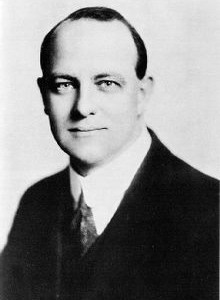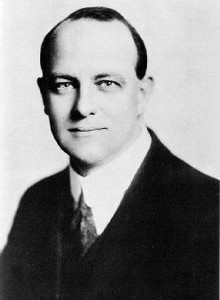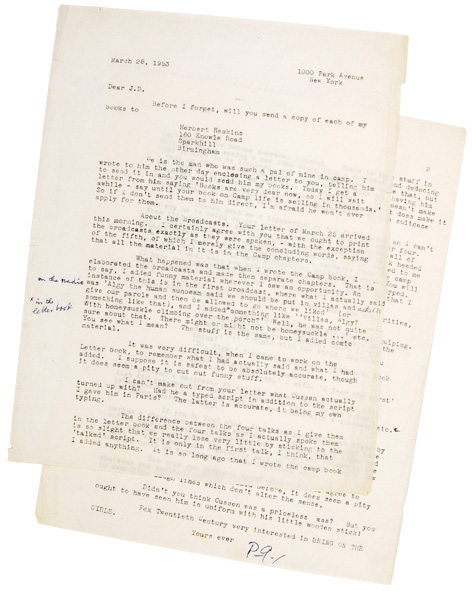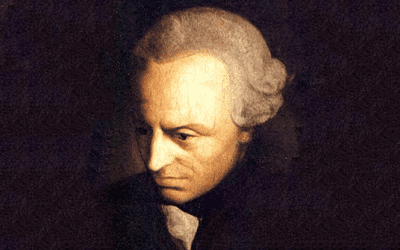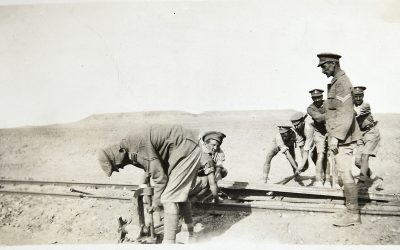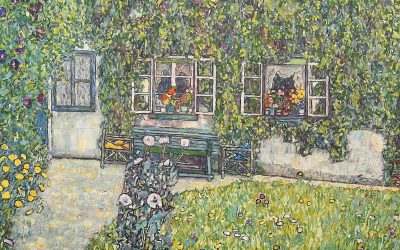The Times is today featuring an article on P. G. Wodehouse’s radio broadcasts from Berlin during the Second World War, based on information in newly released MI5 files. We currently have in stock an important letter by Wodehouse, one that shines light on the difficulty he faced in trying to restore his reputation following the war.
At the beginning of the war Wodehouse was an international celebrity best known for his comedic “Jeeves” novels. He and his wife were living in France and, unable to escape the German advance, he was interned along with all other Englishmen in the country. He was soon released, partly due to his age, but also because of his popularity in America, which was still a neutral country that Germany hoped to avoid provoking. It was for this reason that the Germans requested he make a series of humorous broadcasts about his internment for the American public. He complied and, though the material contained nothing anti-British or sympathetic to the Nazis, Wodehouse was roundly reviled and placed under serious investigation headed by a Major E. J. P. Cussen.
Wodehouse was still haunted by this years later. In the spring of 1953 he was in New York finishing a volume of memoirs and proposed to include transcripts of his Berlin talks in order to demonstrate their innocence. Our letter reveals that his investigator Major Cussen read the book at draft stage and confronted the publisher with the fact that Wodehouse had not supplied accurate transcripts of the original broadcasts. Wodehouse floundered to explain this to his editor, writing that, “I added funny material whenever I saw the opportunity… You see what I mean? The stuff is the same, but I added comic material… I suppose it is safest to be absolutely accurate, though it does seem a pity to cut out funny stuff.”
Though he was trying to restore his reputation by publishing the full texts of the broadcasts, Wodehouse was unable to resist adding additional comedic touches that jeopardized the integrity of the project. Ironically, it was this desire to amuse and entertain that not only created his celebrity and influenced his decision to make the broadcasts in the first place, but finally damaged his attempts to rehabilitate his reputation.

